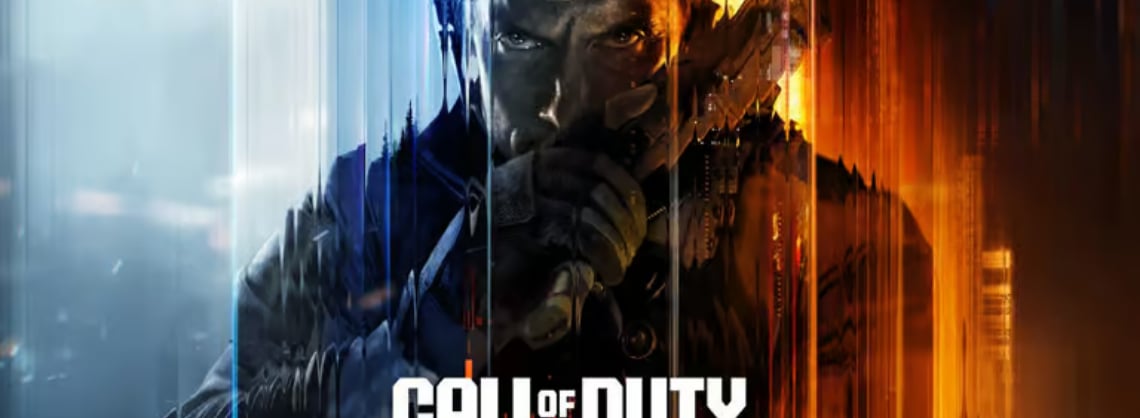
Related Stories
For more than twenty years, Call of Duty has reigned over the shooter genre, moving over 500 million copies worldwide. Yet with Black Ops 7, the franchise enters the ring as the unexpected underdog.
Shooter fans have had a feast in 2025. Battlefield has returned to form with the explosive Battlefield 6, and ARC Raiders’ blend of tense firefights and unforgettable set pieces has delivered one of the best multiplayer experiences since Overwatch debuted in 2016.
Despite Black Ops being one of Call of Duty’s most beloved sub-series, the excitement around this new installment has been surprisingly muted. That’s partly due to the fierce competition — but also the feeling that another near-future entry from Treyarch isn’t exactly breaking new ground.
Now that Black Ops 7 is finally here, the question is simple: can it stand toe-to-toe with ARC Raiders and Battlefield 6? With launch-day review copies arriving late, this will be a review-in-progress as we work toward a final verdict over the coming week.
What is Call of Duty: Black Ops 7 about?
Black Ops 7 picks up a decade after the events of 2012’s Black Ops 2 and the presumed death of Cordis Die leader Raul Menendez. Set in 2035, you play as David Mason — son of original protagonist Alex Mason — as he and his JSOC team investigate Menendez’s unexpected return.
The narrative also dives deep into The Guild, a once-criminal network now transformed into one of the world’s most powerful tech giants, led by CEO Emma Kagan, portrayed by Kiernan Shipka (Chilling Adventures of Sabrina, Mad Men).
Multiplayer remains the franchise’s backbone
Call of Duty’s gunplay continues to set the standard. Black Ops 7 delivers fast, frantic firefights that feel as crisp and satisfying on your thousandth kill as on your first.
Weapons look, sound, and handle better than ever, with far more distinction between guns compared to Black Ops 6, where many rifles blurred together. Here, each firearm has a clearly defined personality and role.
Time-to-kill is largely unchanged from last year, striking a strong balance between pace and fairness. Gunfights reward smart positioning and accuracy without instantly punishing every mistake — high-skill players still have room to react.
Aim assist changes
One of the biggest pre-launch talking points was aim assist, which received a significant nerf in the day-one patch compared to the beta. On controller, the difference is immediately noticeable, especially at close range, demanding more precision before aim assist really kicks in.
It can feel harsh at first, and Treyarch may need to fine-tune it to avoid overwhelming casual players — especially with the lack of skill-based matchmaking — but the larger skill gap ultimately benefits the overall experience.
Omnimovement evolves
Omnimovement returns, allowing sprinting, sliding, and diving in any direction, but the standout addition is wall-jumping. You can run at a wall, jump, and spring off it to reach new angles or pull off stylish trick shots.
It never reaches the hyper-mobility of the jetpack era, but it feels smooth, intentional, and meaningfully integrated into map design.
Maps are a major improvement
Black Ops 7’s launch maps are a huge improvement over the underwhelming offerings in Black Ops 6. Treyarch has leaned back into clean, readable layouts — most of them classic three-lane designs that CoD maps are known for.
Homestead steals the show, set on a frozen lake beneath the northern lights — one of the most visually striking maps in franchise history. Raid, returning from Black Ops 2 with a futuristic Japanese overhaul, once again proves why it’s considered an all-time great.
Not every map succeeds. Flagship, set beneath an old aircraft carrier, is visually bland and lacks flow, while the tiny Blackheart delivers pure chaos that only fans of Shipment-style maps will appreciate.
Still, the overall lineup is strong, and most matches feature map votes where both choices feel genuinely appealing.
Great fun — but very familiar
Black Ops 7’s multiplayer is undeniably enjoyable and will keep players engaged for months. But despite its polish, it doesn’t introduce anything truly groundbreaking.
Weapon prestige returns with new rewards, and the Overclock mechanic adds useful upgrades to Scorestreaks and equipment — like tougher UAVs or cookable Sticky Grenades — but these additions don’t reach the transformative impact that omnimovement had in Black Ops 6.


